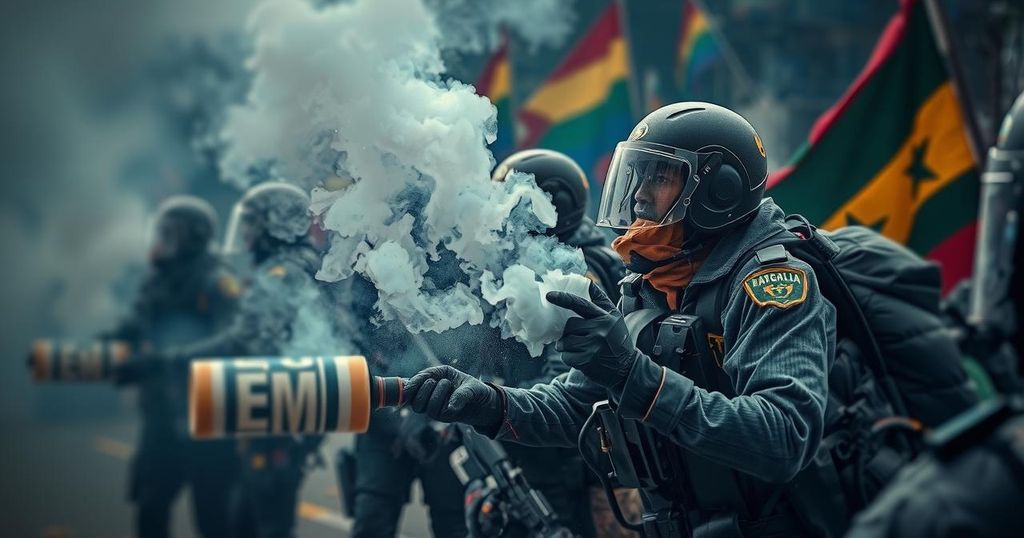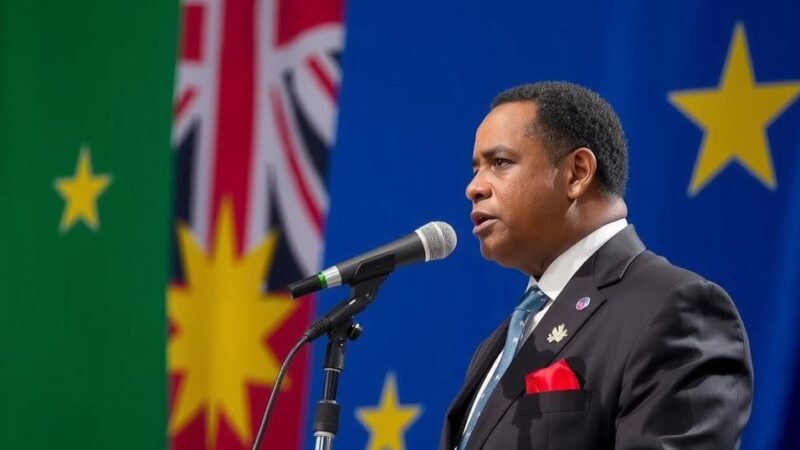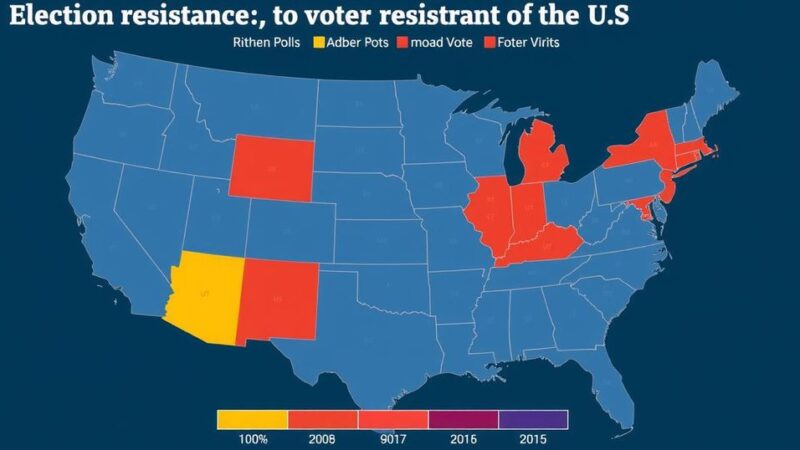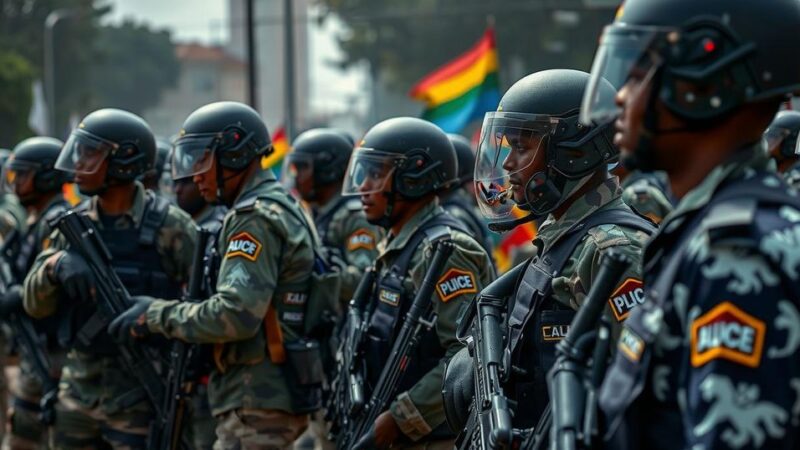Mozambique is facing escalating protests against the government, following widespread allegations of electoral fraud in the recent October 9 elections, won by the Frelimo party. Police have responded violently, dispersing protesters with tear gas, leading to fears of heightened conflict. Opposition leader Venancio Mondlane claims victory and calls for reform as human rights organizations report multiple fatalities due to police actions. The situation continues to develop amid international concern over human rights violations and political stability.
In Mozambique, significant unrest has erupted following the results of the October 9 elections, which confirmed the Frelimo party’s continued dominance after nearly five decades in power. On a recent Thursday, protesters took to the streets of Maputo, outraged by allegations of electoral fraud. Police intervened by deploying tear gas in an attempt to disperse the demonstrators, who expressed solidarity with opposition leader Venancio Mondlane, asserting that the elections were manipulated. This protest marks the largest demonstration against the current government, as frustrations mount amid accusations of violent suppression by law enforcement. Mondlane, who claims to have won the election, emphasized the critical need for political change, stating, “I feel that there is a revolutionary atmosphere … that shows that we are on the verge of a unique historical and political transition in the country.” As clashes between protesters and police continue, mortality rates have risen, with human rights organizations reporting numerous fatalities. Police efforts to quell dissent have raised concerns amongst civil society groups, with reports of police employing excessive force, compounded by a heavy security presence in urban areas. Furthermore, internet access has been restricted, prompting international observers and advocates for human rights to call for adherence to democratic protocols and the protection of citizens’ rights. As tensions escalate, the future of Mozambique’s political landscape remains uncertain, with significant worldwide attention focused on the government’s response to public outcry.
The political climate in Mozambique has deteriorated following a contentious election process held on October 9, which has led to accusations of electoral fraud and civil unrest. The Frelimo party has been in power since Mozambique’s independence in 1975, creating a long-standing political status quo that many citizens are challenging. The protests occurring in Maputo represent a culmination of grievances against the ruling party, marked by significant participation from young demonstrators calling for transparency and justice in governance. Amidst these tensions, international organizations, including Amnesty International and the United Nations, have voiced concerns over the government’s approach to public dissent and the need for adherence to human rights obligations. This situation is further complicated by potential power transitions anticipated with the completion of President Filipe Nyusi’s term in office and expected changes in leadership within the Frelimo party.
In summary, Mozambique is experiencing a significant sociopolitical upheaval post-election, characterized by widespread protests and allegations of electoral malpractice. The government’s heavy-handed response has drawn criticism from both local and international observers. With leaders like Venancio Mondlane advocating for political reform amidst fears of violence, the future political structure in Mozambique hangs in a delicate balance, needing careful navigation to uphold democratic ideals and human rights. The continuing unrest may prompt further international scrutiny and intervention as the situation develops.
Original Source: www.aljazeera.com






